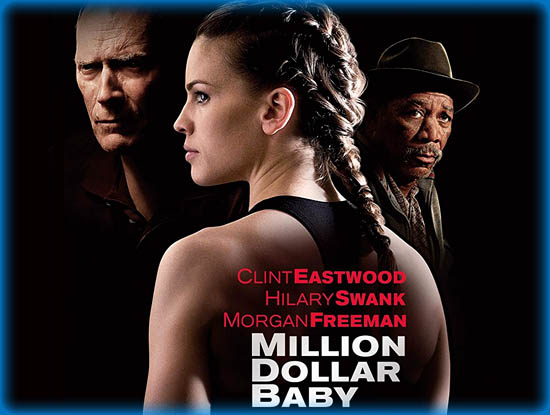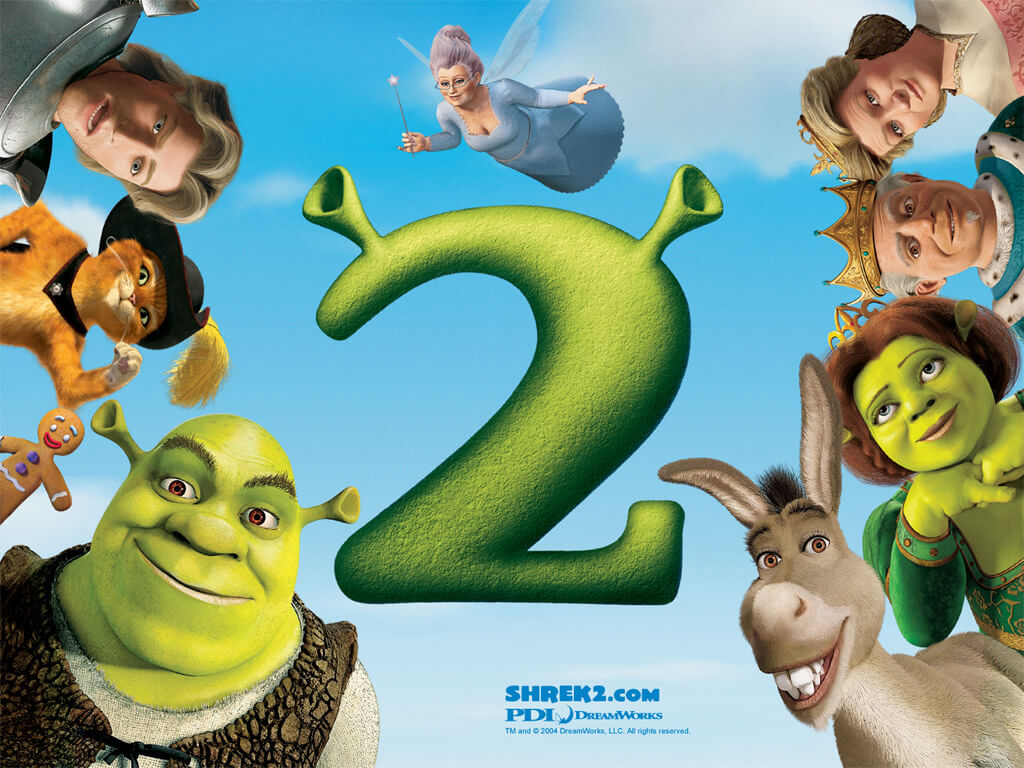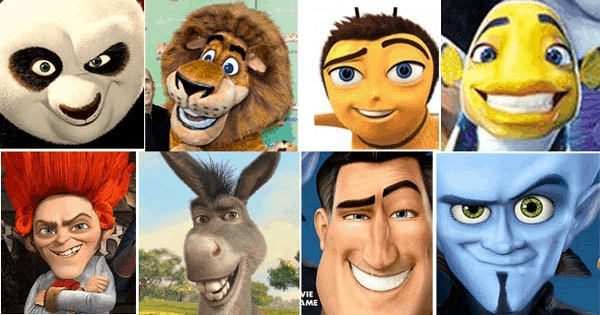2004
And with The Lord of the Rings complete, the Academy and those of us who follow the Oscars wondered “Well… now what?” And Hollywood said “We have some biopics, you like biopics, right?” Finding Neverland was a questionably accurate at best look at J.M. Barrie creating Peter Pan, Ray was a Musician Biopic designed to get Jamie Foxx an Oscar (mission accomplished), and Martin Scorsese’s The Aviator is the one I actually watched in theatres, which could not find Leonardo DiCaprio an Oscar, but snagged one for Cate Blanchett.
And Clint Eastwood, whose Mystic River scored two acting trophies but mostly got clobbered by Return of the King, stepped up to say “How about a slow, meditative story of broken people trying to be better than their circumstances?”
We come now, in 2004, to the last milestone. The one I’d been dreading most. We’ve hit First Movie I’d Already Seen (Snow White), First Best Picture I’d Already Seen (The Godfather), First Movie I Own On Blu-Ray (Star Wars)… and now here in 2004 are The Last Movies I Hadn’t Seen. First…
And The Oscar Goes To…
Frankie Dunn (Clint Eastwood) runs a boxing gym, aided by half-blind ex-boxer Eddie Dupris (our narrator, Morgan “Lucius Fox” Freeman) and trains fighters, currently a promising contender (Mike “Luke Cage” Colter) that Dunn seems unnecessarily reluctant to book for a title fight. Female boxer Maggie Fitzgerald (Hilary “The Next Karate Kid” Swank), who comes from nothing and has nothing but the drive to box, wants Frankie to train her, but he refuses to train women… until eventually he does because otherwise there’s no movie. Working with Maggie heals the both of them, replaces something that was missing in each of their lives… and then one dirty punch from a scumbag champion who probably should have been banned after that ruins everything, and… well, the ending had been well and truly spoiled for me over and over, so I imagine it’s just Out There… Maggie ends up paralyzed, and Frankie has to mercy kill his surrogate daughter, before disappearing into the night to wait for his own end. So… super cheerful.
There’s also a kind of tacked-on subplot about a mentally challenged kid with hopes of being a welterweight (Jay “Hiccup the Dragon Trainer” Barcuhel) and a bully at the gym (Anthony “Falcon” Mackie) that doesn’t really add much except to give Morgan Freeman a “lay out the bully” moment almost but not quite as satisfying as the one from How Green Was My Valley.
So wow but is this an abrupt shift from Lord of the Rings. Hell, it would have been an abrupt shift in tone, style, and pacing if it had followed Chicago, but coming in the wake of Return of the King, it might be the biggest tonal shift in Best Pictures since they followed Ben-Hur with The Apartment. Which… okay, this is pure speculation, as there is no oral history of voting choices I can consult, but The Apartment beating Spartacus one year after Ben-Hur felt like the Academy saying “No, we’re done with the sword-and-sandal stuff, you had your moment.” Likewise does Million Dollar Baby taking the top prize (also Director for Clint Eastwood, Lead Actress for Cobra Kai holdout Swank, and Supporting Actor for Freeman) feel like an intentional course correction from finally giving in to Rings. And also if I’m being honest, Gladiator and Chicago. Hell, even A Beautiful Mind was splashier than this one.
Is it an improvement? I argue no. None of the big emotional beats of Million Dollar Baby hit quite as hard for me as Frodo volunteering to take the Ring to Mordor. And Morgan Freeman narrating, ten years after Shawshank Redemption, was a bit of a cliché. And also played like nihilistic Pop Up Video. But it’s not a failure by any margin. Three of its competitors were Great Man Biopics fishing for acting Oscars, and you know how I feel about those, and Sideways… I don’t actually know. Haven’t seen Sideways. It did beat Million Dollar Baby for Adapted Screenplay. But I’m just saying, odds favour this having actually been the best 2004 was offering. Which might seem like damning with faint praise, again I don’t know, until now I’d only seen The Aviator and I surely haven’t watched it twice.
Million Dollar Baby is a slow-paced mediation on broken people coming together to heal each other. It argues that while chasing your dreams might end in horrible tragedy, it might be worse to live a long, empty life filled with wondering what could have been if you’d taken your chance when it came. What’s most interesting to me is that it signifies a swing of the pendulum from well-made spectacles like Gladiator, Chicago, and Lord of the Rings back towards quieter character pieces like A Beautiful Mind. We seem to end up on one or the other. It would make for quite the title bout if 2009 came down to a massive spectacle picture vs. a smaller character piece, maybe even from directors who used to be married, that’d be a thing.
And Rotten Tomatoes Says: It’s in the back half at #54, under Mrs. Miniver and over Midnight Cowboy, and that feels backwards, I don’t know what to tell you.
Which Fellowship Member Are You? Some impressive fighting, but takes itself too seriously. That makes Million Dollar Baby Legolas.
And now, The Last Movie I Hadn’t Seen. All of. I’d seen bits working as a projectionist, but never the full story.
The Box Office Champ
That’s how much people loved Shrek in the early oughts, readers. Shrek 2 beat both Sam Raimi’s much improved follow-up to Spider-Man and the third Harry Potter. Shrek 2 doubles down on the original’s comic subversion of classic fairy tales by making a Fairy Godmother and Prince Charming the dastardly villains, driven by a need to enforce status quos and conventional beauty. Well and also thirst for power, they’re literally trying to steal a kingdom, but those first things are the overall theme.
The pop culture jabs come even thicker this time out, with the opening title sequence of Shrek and Fiona on their honeymoon referencing From Here to Eternity, The Little Mermaid, Peter Pan, Spider-Man, and of course The Fellowship of the Rings, and those are just the ones I caught. Plus whatever two people running through a flower field to each other in slow motion is referencing. And it never stops. There’s a “Starbucks across from a Starbuck” joke, Joan Rivers doing commentary on a red carpet, a Cops parody… so much of the humour in this movie is heavily stale-dated because they went for easy laughs over genuine cleverness. Not all, but a lot. Still… let’s put that aside and talk about Dreamworks Animation.
Shrek 2 kind of exists at an intersection of what Dreamworks has done right, and their biggest crutch. The crutch, of course, is overreliance on big name celebrity casts. The worst example, to my thinking, also came out in 2004: Dreamworks’ attempt to counter Finding Nemo, Shark Tale. Finding Nemo had a big name cast, sure… Albert Brooks might not be A-list talent (but he should be), Ellen Degeneres wasn’t at the time, but the support cast was stacked. But the characters came first: they created a fish character and cast Willem Defoe. Shark Tale cast Will Smith, and then designed a horrifying uncanny valley fish monster for him to play, of course sporting the signature Dreamworks Face.
And then they did the same thing with the rest of the cast. Shark Tale was built up from the cast, Finding Nemo from the story. Shrek was built on Eddie Murphy and… well, Chris Farley. Mike Myers stepping in and deciding the ogre needed to be Scottish came later.
So of course Shrek 2 still has a notable cast, though Julie Andrews, John Cleese, and Rupert Everett weren’t exactly Will Smith, Robert De Niro, and Jack Black, so they weren’t nearly as bad as Shark Tale. If still leaning on celebrity casting much more than Pixar’s 2004 entry, The Incredibles, still the best Fantastic Four movie ever made despite not being about them at all.
As to where Dreamworks does well? Unconventional heroes in recognizable story types (fairy tale, kung fu, dragon fights) who win out not by doing a training montage to learn to be a standard hero, but by leaning into what makes them different. It’s a somewhat obvious hook and I’m by no means pretending that only Dreamworks thought to use it, but it’s why Shrek, Kung Fu Panda, and How to Train Your Dragon became big hits and I’m the only one still talking about Shark Tale. Shrek 2 emphasises this, by making it clear that Shrek trying to transform himself into a classic prince is a mistake. (How to Train Your Dragon still did this best, though.)
Of course Shrek 2’s greatest sin is having a radio edit of “Holding Out For a Hero” under the end credits. Look I find radio edits bad enough when they’re an original song from the movie, but the Fairy Godmother’s in-film performance was already a cover. And a better cover. There was no need for an additional cover, who approved that. Of all the end-credit songs only here to pad out a soundtrack CD, that’s the least necessary, and given that it’s followed by like three end-credit songs with no connection to the movie, that’s saying something.
Apropos of nothing:
And Rotten Tomatoes Says: 89% from critics, but only 69% from audiences. Don’t often see that. I guess people have noticed this one hasn’t aged all that well.
Other Events in Film
- This Year in Superheroes: Obviously the big one was Spider-Man 2, the best live action Spider-Man, which we’re not discussing because of Shrek-mania. The underrated one (certainly at the time) is Guillermo Del Toro’s Hellboy. Blade: Trinity is an ignoble end to the franchise, in which it’s clear Wesley Snipes has stopped caring. The Punisher plays it too safe and has the misfortune of opening against the much better and more anticipated violent revenge movie Kill Bill Vol. 2, and a week before slower-burn revenge movie Man on Fire. And Catwoman is a piece of trash that shouldn’t even be considered a comic adaptation.
- Edgar Wright, Simon Pegg, and Nick Frost take their partnership from the TV show Spaced into the movies with cult hit zombie rom-com Shaun of the Dead, which is also, in a way, one of our trilogies.
- Sometimes a movie becomes a hit because right-wing rubes think that seeing it means winning a battle in a culture war. I feel like that explains most of the hits from the 50s. In 2004, rubes got it into their heads that watching Mel Gibson’s entirely subtitled torture porn movie The Passion of the Christ was their religious duty, and thus it raked in way more money than it warranted.
- Zack Snyder brings fast zombies to a remake of a classic zombie story in Dawn of the Dead. For good or ill, Zack Snyder has now made his bones.
- If anything should have challenged Million Dollar Baby for the Oscar, it’s probably Eternal Sunshine of the Spotless Mind from writer Charlie Kaufman and director Michael Gondry… but we recall how the Academy views Jim Carrey vehicles, now don’t we.
- Ocean’s 12 loses the fun of its predecessor, and overcommits to a meta-joke about Julia Roberts’ character resembling Julia Roberts. Topher Grace makes a cameo as himself again, claiming to be in a bad spiral, saying he “phoned in that Dennis Quaid movie.” Said movie was In Good Company, which actually came out over three weeks later. Ill-timed self-own, Topher.
- Looking back, hoo golly am I glad the Academy didn’t take the obvious bait of The Alamo. Billy Bob Thorton in a biopic demystifying Davey Crockett sounds interesting, but not like this.
- Feels worth mentioning that Napoleon Dynamite came out this year.
- Steve Coogan and Jackie Chan team up for the cameo-studded Around the World in 80 Days, updating the 50s best picture. I don’t know it’s better, but I’d wager upwards of five dollars that it’s more fun at least.
- Following in the footsteps of Freddy Vs Jason is Alien vs Predator, keeping the classic 80s franchises alive a while longer while also confirming they peaked at their second entries at latest.
- Gurinder Chadha, the creator of Bend it Like Beckham, returns with the Bollywood-themed Bride and Prejudice. It’s less successful. I am not tapped in enough to the Indian community to know if they took issue with the way Chadha’s protagonists keep ending up with white men.
- The creators of South Park tried to claim that their puppet action-parody Team America: World Police is non-political, but the way it reserves most of its satire for celebrities speaking out against an unnecessary war started with a lie disproves that. If anything, it proves that Parker and Stone had begun their slide into being the worst, tackiest, most damaging kind of centrists. They stand for nothing, and find those who stand for anything worthy of mockery.
- Aquaman director and co-star James Wan and Leigh Wannell debut Saw, which will rule Halloween for the rest of the decade.
- Elsewhere in cinematic horror, Robert Zemeckis uses motion capture to cast Tom Hanks as at least three different characters in The Polar Express, all dead-eyed abominations that will chill your soul if you gaze at them too long. And what is the point of that song about hot chocolate. It’s amazing Saw took off like it did, being less horrifying to behold than Polar Express and less gory than Passion of the Christ.
- Vin Diesel makes deals, calls in favours, and plays Dungeons and Dragons with Dame Judi Dench to get The Chronicles of Riddick made.
- Remember when National Treasure made breaking into the Capitol to steal the Declaration of Independence look hard to do? Turns out all you need is to know some alt-right thug in the Capitol police willing to open the door for you.
- You Got Served, a movie about two friends trying to escape the ghetto with nothing but a 12-person dance troupe and a dream, is one of the most ridiculous movies I ever ran in my projectionist career. It’s so ridiculous South Park made an entire episode about it.
Next Page: Everyone’s a little bit racist, it’s true…



